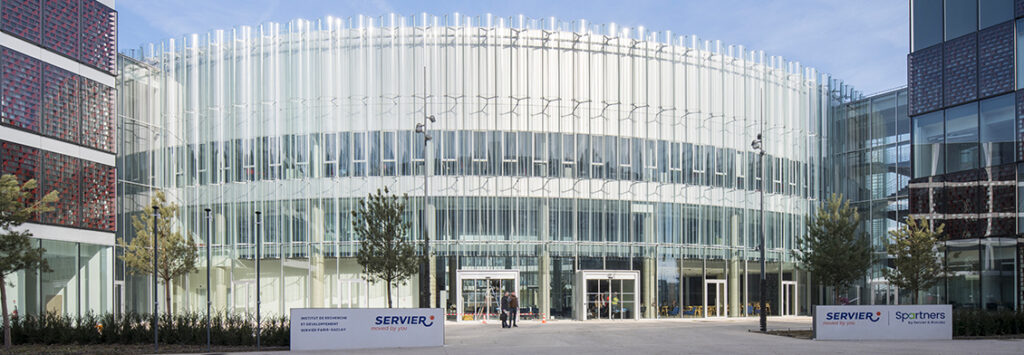At Servier, we are committed to reducing the impact of our medicinal products and our activities on biodiversity. A look back at our concrete actions in 2021/2022.
Our ambition and objectives
In 2021, we joined Act4Nature International, an initiative for voluntary commitments supporting biodiversity. Launched in 2018 by the French EpE (Entreprises pour l’Environnement) association, and a number of partners, this alliance, involving companies, public authorities, scientists and environmental associations, aims to create a genuine international collective dynamic to protect, enhance and restore biodiversity, especially with the involvement of leaders from all sectors.
Through this approach, we have adhered to the 10 core commitments set out by Act4Nature, in addition to making individual commitments which are in line with our CSR strategy. They are built around four pillars:
These four priority pillars are the result of an impact analysis carried out within the Group in 2021 by an independent expert organization. The SMART (specific, measurable, attainable, relevant, time-bound) nature of these commitments was validated by a committee of partners including environmental NGOs, business networks and scientific partners.

Find out more about the United Nations’ Sustainable Development Goals (SDGs)
Our achievements and results for 2021/2022
Incorporating biodiversity criteria into specifications for purchasing natural raw materials
To assess and reduce the impact of our medicinal products on biodiversity, we are committed to incorporating biodiversity criteria into the specifications for natural raw materials (paper/ cardboard, sugar and lactose). This work began in 2021/2022 by tracing the quantities and origins of supplies. This review identified the various suppliers and the corresponding volumes. 100% of expenditure to purchase paper/ cardboard, sugar and lactose was reviewed. We are currently analyzing the results to look into the possibility of incorporating biodiversity criteria into specifications. The objective is to incorporate biodiversity criteria into the corresponding specifications from 2023.
Reducing the impact of our sites on biodiversity
By 2027, Servier aims to attain a BiodiverCity Life® or equivalent label for 100% of its French sites. BiodiverCity Life® is the first label that takes into account biodiversity on real estate projects. This ambition is illustrated for instance by the Research & Development Institute in Paris-Saclay, for which the BiodiverCity® label process is underway. The final audit is expected in 2023. The return on experience with this certification will then make it possible to create a BiodiverCity Life® file and move forward with the accreditation of the other French sites.

Similarly, with a view to reduce the impact of our sites on biodiversity, we are working to reduce the water effluents generated by our activities. We are actively involved in European research work on the environmental impact of medicinal drug substances through the Innovative Medicines Initiative (IMI) PREMIER project. Alongside this, we have rolled out recommendations and defined best practices inspired by the European Federation of Pharmaceutical Industries and Associations (EFPIA)’s work through an internal guide for managing liquid effluents that impact ecosystems and another on medicinal residues. The monitoring of environmental indicators concerning water effluents has been put in place at all of the industrial sites. By 2024, we aim to establish voluntary quantitative and qualitative objectives for reducing water effluents, as well as indicators for monitoring this (water pollution parameters).
Training employees on biodiversity and building their awareness
Our Biodiversity roadmap also includes actions to raise employees’ awareness and develop their skills in relation to biodiversity issues. To date, 41 of the Group’s EHS/CSR correspondents, representing 82% of this population, have taken part in the Biodiversity Collage initiative. By the end of 2023, Servier aims to train 100% of the Group’s CSR/ EHS correspondents and build awareness on biodiversity topics among all employees.
